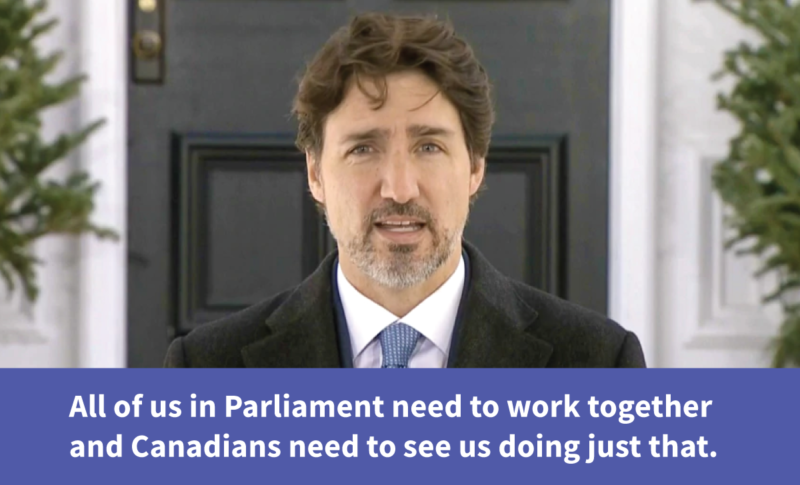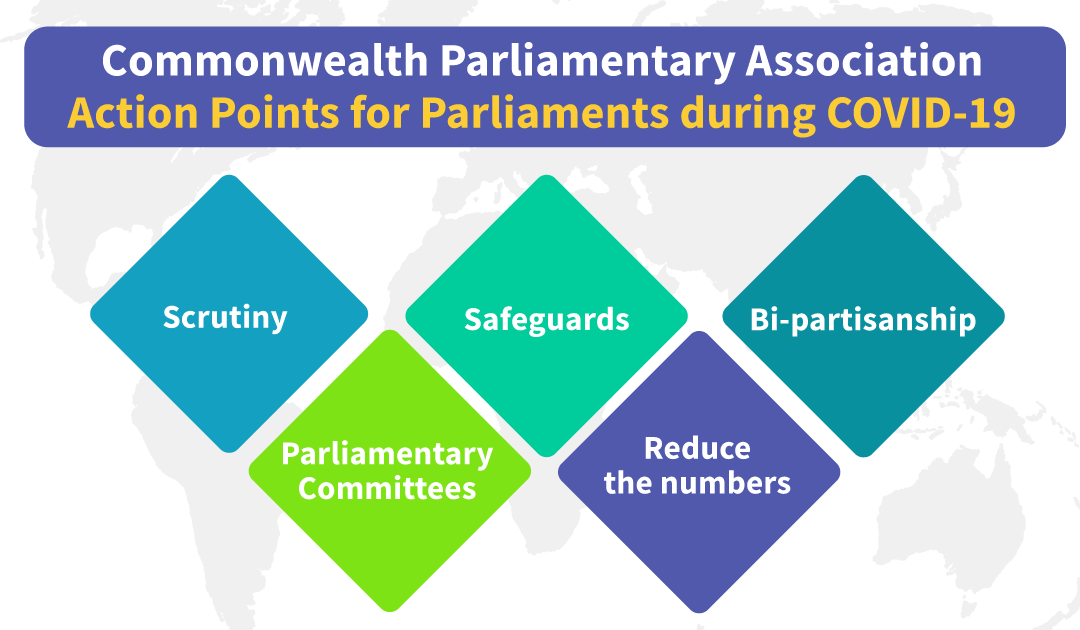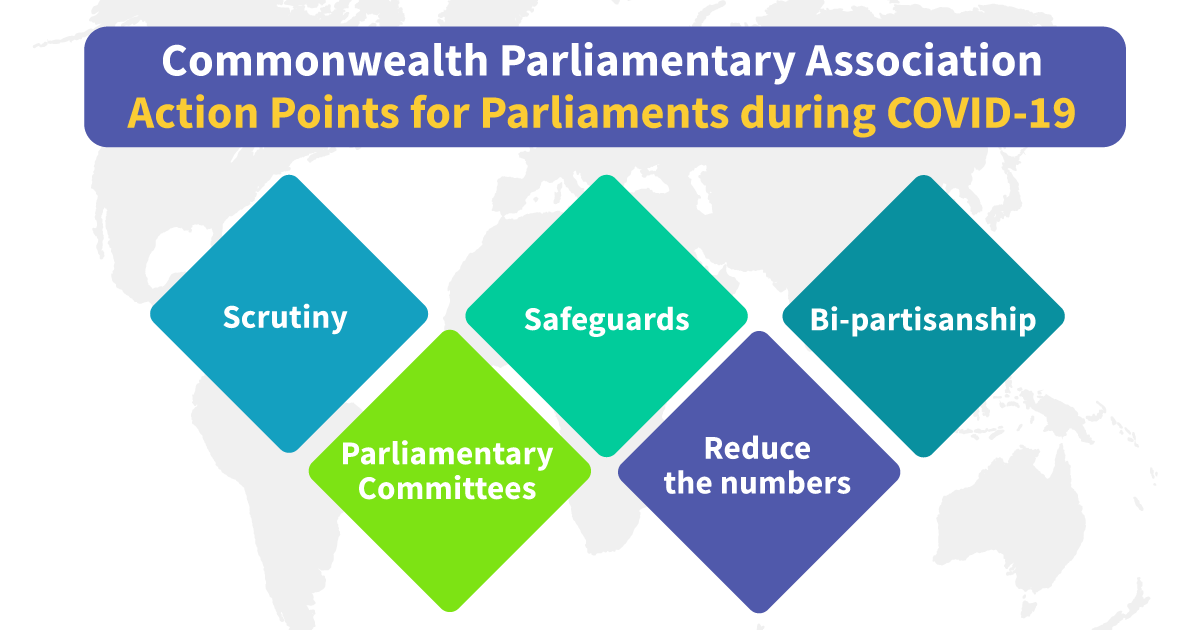
This week the Commonwealth Parliamentary Association released its Toolkit for Commonwealth Parliaments and Legislatures on the COVID-19 (Coronavirus) pandemic and delivering parliamentary democracy. The CPA includes all 180 Parliaments across the Commonwealth. Canadian MP and Speaker of the House Anthony Rota is its President. The next annual meeting will be in Nova Scotia.
The COVID-19 Toolkit highlights best practices for Parliamentary governments to ensure scrutiny, transparency and participation (pages 16-17), at a time when legislation may need to be fast-tracked and to avoid the marginalization of MPs and the concentration of power in the governing party’s inner circle.
The CPA recommends six action items for Parliament, described below. In the spirit of encouraging collaborative government and a vibrant democracy throughout the pandemic and our recovery from it, Fair Vote Canada is providing a preliminary analysis of how Canada is doing according to the CPA’s criteria.
 Bi-partisanship
Bi-partisanship
The CPA advises that, as much as possible, party politics should be set aside. All parties must balance the need to pass legislation efficiently with the need for proper scrutiny. More informal collaboration to reach agreements will be needed.
Canada’s performance: In Canada’s case, with five parties seeking input into legislation, this criterion should more appropriately be called “multi-partisanship.” To date, there has been substantial progress towards cooperation and collaboration in Parliament and key ideas and improvements from all parties have been incorporated into legislation. A minority Parliament in which all the parties are working together on shared objectives is paying dividends.
Fair Vote Canada will continue to encourage as much collaborative decision-making as possible up front, to ensure effective and timely legislation. Research shows that cooperative governments produce better outcomes—–including on health measures. To that end, we encourage citizens to join the call for increased collaboration between party leaders.
Scrutiny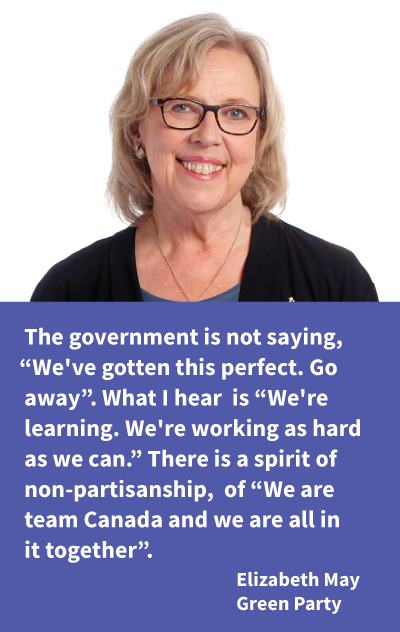
The CPA advises that Parliaments may need to make changes to ensure they can continue to function, including allowing members to ask questions, while large numbers of MPs are forced to work from home.
Canada’s performance: Special in-person Parliamentary meetings with a smaller number of MPs have worked well to pass emergency legislation so far. However, this does not eliminate the need for regular meetings of Parliament so all of our elected MPs can do their jobs. The Procedure and House Affairs Committee of Parliament (PROC) is currently examining how best to do this, including the option of a virtual Parliament.
The daily opportunity for MPs to hold Ministers to account via a Q+A is a step in the right direction, encouraging transparency, open communication and improved legislation. Whether the House meets virtually, in person, or using some combination of the two, we hope this practice continues, and that the collegiality extends beyond private meetings and into the public sessions of the House when the cameras are on.
Parliamentary Committees
The CPA advises that although emergency legislation may need to bypass committees and be passed directly by the House, the work of Parliamentary committees should continue, supported by online testimony from witnesses as required.
Canada’s performance: The Finance and Health committees have already been meeting online. On April 11, the government agreed that Industry, Government Operations, Human Resources and Procedure and House affairs committees would also start meeting virtually.
Traditionally, some of the most collaborative work in Parliament occurs in committees. Although planning related to the outbreak of COVID-19 will of course take priority, the work of those committees should not be limited to discussions on COVID-19. As we plan the economic recovery from COVID-19, it will become important for more committees to meet online to ensure all parties have input in defining Canada’s future.
Post-legislative scrutiny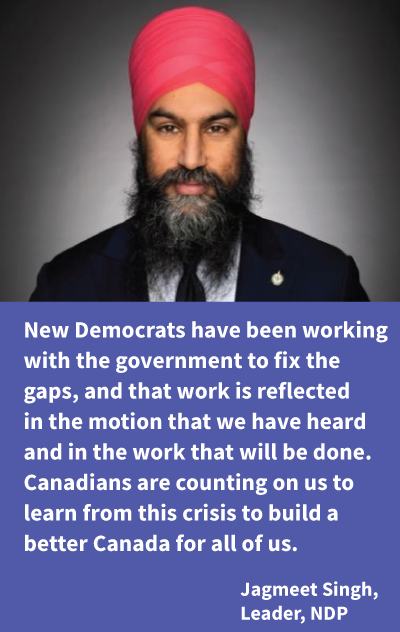
The CPA advises that Parliamentary scrutiny is even more important when emergency legislation is fast-tracked, so that the government can be held to account and to ensure that any important improvements can be made.
Canada’s performance: The advantage of this sort of scrutiny was evident last month when the CERB benefit was significantly improved thanks to feedback from MPs from all parties about gaps for individuals and businesses. As the government seeks to adapt to changing circumstances, we are going to need robust mechanisms for ongoing feedback and improvement to ensure programs adapt to meet the needs of Canadians.
Safeguards
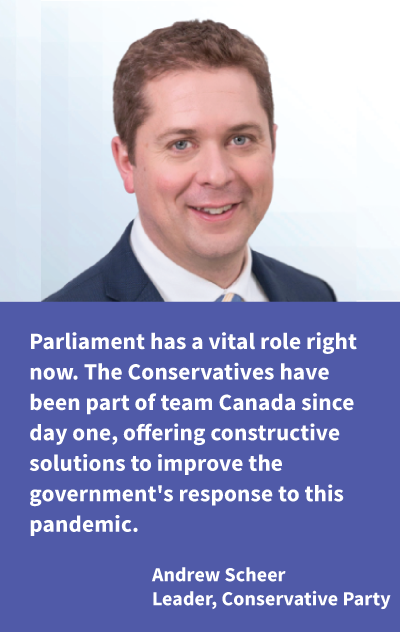 The CPA advises that when power is centralized with the executive or when civil liberties are restricted, it is crucial to ensure that these measures do not exceed what is necessary and that a “sunset clause” be built into the legislation.
The CPA advises that when power is centralized with the executive or when civil liberties are restricted, it is crucial to ensure that these measures do not exceed what is necessary and that a “sunset clause” be built into the legislation.
Canada’s performance: Last March, opposition parties ensured that the government’s unlimited spending powers would be limited to 6 months. This limit will be reviewed in September 2020.
Reduce the Numbers
The CPA advises that, for health reasons, it may be necessary to drastically reduce the number of MPs in the House at one time, and to limit such sessions to essential business.
Canada’s performance: The balance between limited in-person and online meetings is exactly what the Procedures and House Affairs Committee is currently examining. FVC expects a solution will be negotiated that prioritizes health and safety while modelling safe behaviour for all Canadians will be negotiated.
